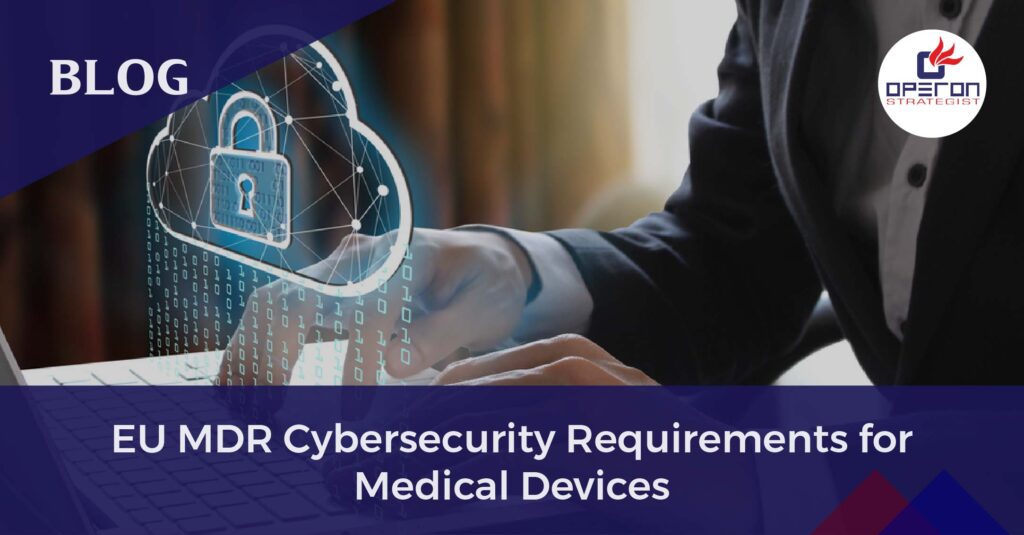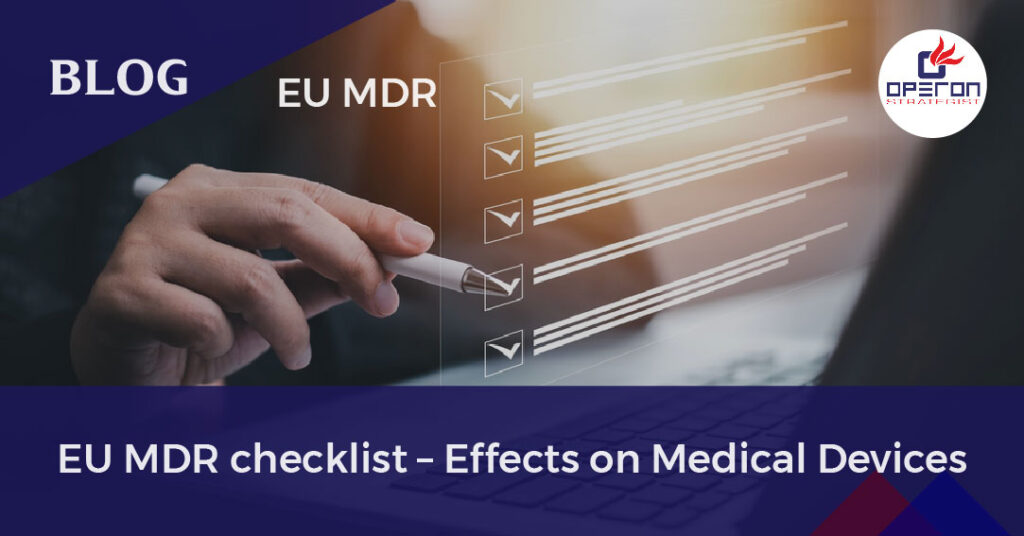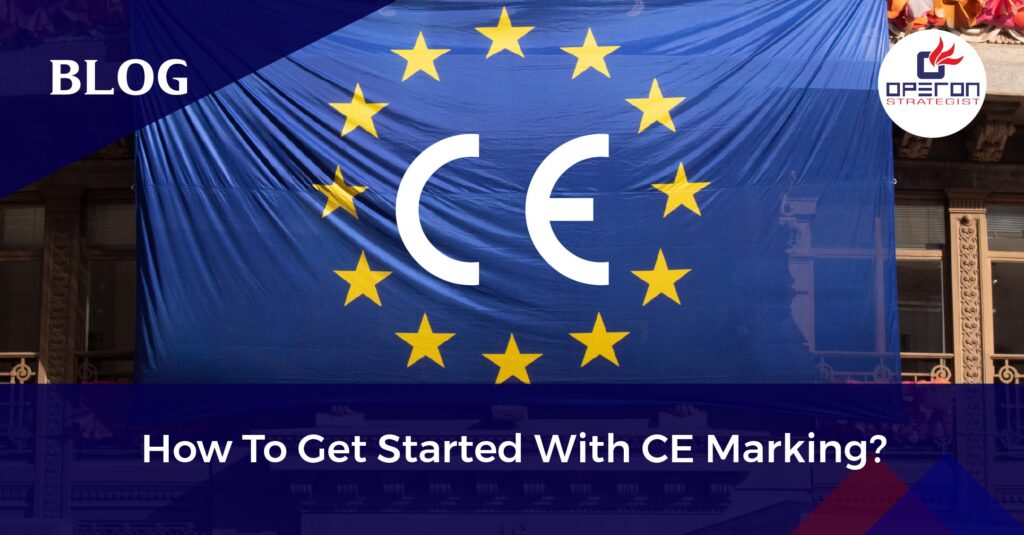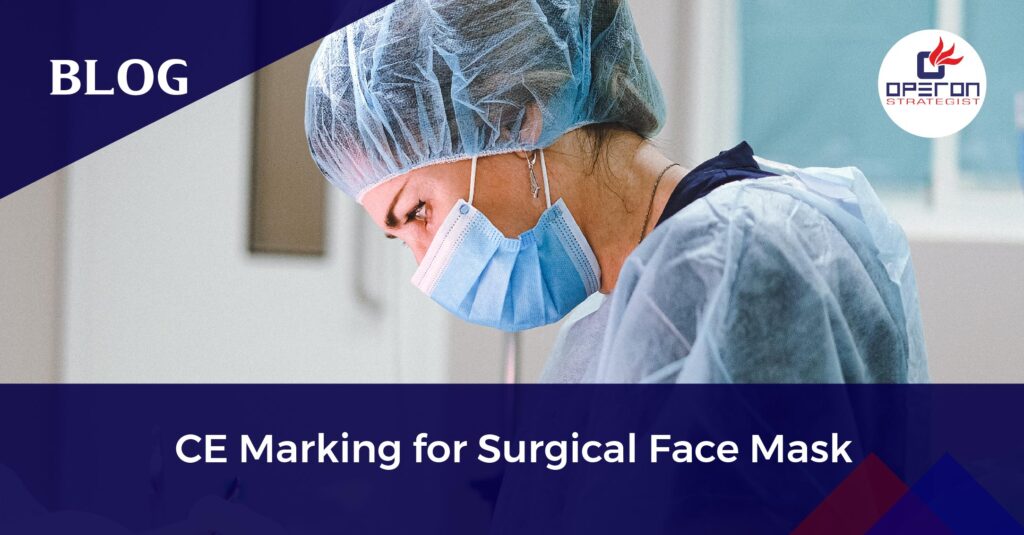Introduction to EU MDR Cybersecurity for Medical Devices:
In the rapidly evolving landscape of healthcare technology, the integration of digital solutions and connectivity has revolutionized patient care. However, alongside these advancements come new challenges, particularly in the realm of cybersecurity. With the increasing prevalence of cyber threats targeting medical devices, safeguarding patient safety and data integrity has become a paramount concern for regulatory bodies and manufacturers alike.
In this blog post, we delve into the intricacies of medical device cybersecurity requirements under the European Union’s Medical Device Regulation (EU MDR) and explore the strategies necessary to ensure compliance and mitigate risks in the digital age.
Looking for a EU MDR Consultant
Let’s have a word about your next project
In the ever-evolving world of healthcare technology, cybersecurity is key. With the EU MDR setting strict guidelines, Operon Strategist, an EU MDR consultant, is your go-to partner for compliance and risk mitigation. Safeguard your devices and ensure patient safety in the digital age—connect with us today!
Understanding the EU MDR Cybersecurity Landscape:
The EU MDR represents a significant regulatory framework governing medical devices within the European Union. With its implementation, cybersecurity has emerged as a critical component of device safety and performance. The regulation mandates that manufacturers adhere to stringent cybersecurity guidelines throughout the lifecycle of medical devices, from design and development to post-market surveillance.
Key Components of EU MDR Cybersecurity Requirements:
- Incorporation of Cybersecurity in Design: Manufacturers must integrate cybersecurity considerations from the outset of the design process, ensuring that devices are inherently resilient to cyber threats. This entails identifying potential vulnerabilities and implementing robust security measures to mitigate risks.
- Compliance with General Safety and Performance Requirements (GSPRs): Annex I of the EU MDR outlines GSPRs for medical devices, including specific provisions related to cybersecurity. Manufacturers are required to adhere to these requirements to ensure the safe and effective functioning of their devices.
- Post-Market Surveillance and Reporting: The EU MDR mandates ongoing monitoring of devices post-market to detect and address any cybersecurity issues that may arise. Manufacturers must establish protocols for reporting adverse events, conducting trend analysis, and implementing corrective actions to mitigate risks to patient safety.
- Collaboration with Regulatory Authorities: Effective communication and collaboration with regulatory authorities are essential for ensuring compliance with cybersecurity requirements. Manufacturers must proactively engage with notified bodies and regulatory agencies to address any cybersecurity concerns and facilitate timely resolution.
Best Practices for Achieving Compliance:
- Conduct Comprehensive Risk Assessments: Manufacturers should conduct thorough risk assessments to identify potential cybersecurity risks associated with their devices. This involves evaluating the impact of cyber threats on patient safety, data integrity, and device functionality.
- Implement Security-by-Design Principles: Incorporating security-by-design principles into the development process can help enhance the resilience of medical devices against cyber threats. This includes implementing encryption, authentication mechanisms, and access controls to safeguard sensitive data and prevent unauthorized access.
- Engage in Continuous Monitoring and Testing: Regular monitoring and testing of devices are essential for identifying and addressing cybersecurity vulnerabilities. Manufacturers should conduct penetration testing, vulnerability assessments, and security audits to assess the effectiveness of their security measures and mitigate risks proactively.
- Provide Adequate User Training and Education: Ensuring that healthcare professionals and end-users are adequately trained in cybersecurity best practices is crucial for minimizing the risk of human error and unauthorized access. Manufacturers should provide comprehensive user training and educational materials to promote awareness of cybersecurity threats and preventive measures.
Want to Ensure Compliance With EU MDR Cybersecurity Regulations?
Conclusion:
In an increasingly interconnected healthcare ecosystem, ensuring the cybersecurity of medical devices is paramount for safeguarding patient safety and data integrity. Compliance with EU MDR cybersecurity requirements necessitates proactive measures, robust risk management practices, and ongoing collaboration between manufacturers, regulatory authorities, and healthcare stakeholders. By prioritizing cybersecurity throughout the device lifecycle, manufacturers can mitigate risks, enhance patient trust, and contribute to the advancement of safe and innovative healthcare technologies in the digital age.
Stay Ahead of EU MDR Cybersecurity Compliance with Operon Strategist!
Ready to navigate the complexities of EU MDR cybersecurity requirements with confidence? Operon Strategist is your regulatory consultant for ensuring compliance and mitigating risks in the ever-evolving landscape of medical device regulations. From comprehensive risk assessments to tailored solutions for security-by-design principles, our experts are here to support your journey every step of the way.
Contact Operon Strategist today and empower your compliance efforts for safer, more secure medical devices in the digital age. Let’s navigate compliance together and pave the way for innovation in healthcare technology.




